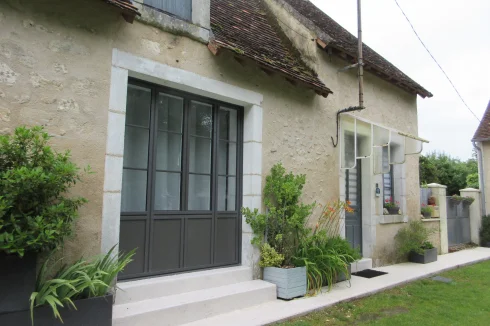Brexit - French Social Charges on UK Nationals
Tuesday 06 April 2021
What are the consequences on social charges for UK nationals as a result of Brexit?
With the UK’s exit from the EU the liability of UK nationals and residents for the social charges has changed.
Those affected are future residents of France, mainly pensioners, and non-residents with French source income.
Pre-Brexit
Under Article L136-1 of the Code de la sécurité sociale, liability to the social charges on pension and professional income occurs if the person is resident in France and in the French health system, as follows:
1. il est domicilié en France au sens de l’Article 4B du Code général des impôts pour l’établissement de l’impôt sur le revenu ;
2. il est à la charge, à quelque titre que ce soit, d’un régime obligatoire français d’assurance maladie.
Nevertheless, under European regulations EC n°883/2004 and 987/2009, a person from an EU Member State can register with the health system of the EU country in which he/she resides, even though he/she remains insured in their home country and the institution of their home country assumes the financial burden of the health benefits. This occurs in Europe through the portable documents available, such as the S1.
That being the case, a person covered by an S1 or equivalent is exempt from the social charges on their pension and professional income.
In recent years, the exemption has gone further, arising out of the landmark 'De Ruyter’ case in the European Court of Justice.
The outcome of that case was to also exclude rental and investment income and capital gains from the scope of those persons not covered by the French health system, an exclusion which also applied to non-resident EEA residents.
As a result, the French government was obliged to change French law to exempt such income, although they instituted in their place a solidarity charge of 7.5% on revenues de patrimoine (rental and investment income and capital gains).
What then does this mean for residents and non-residents?
Residents
In relation to existing British pensioners on an S1, their circumstances have been protected by the UK-EU Withdrawal Agreement (WA) on 24th Jan 2020, which has granted them a continued right to an S1.
Those who relocate to France since 31st Dec 2020 will also have a right to an S1 when the reach retirement age and draw a UK pension.
In short, nothing has changed.
Specifically, Article 30 of the WA on social security coordination states:
"1. This title applies to the following people:[...] (b) UK nationals who are subject to the legislation of a member state at the end of the transition period, as well as family members and survivors. [...] 2. The persons covered in paragraph 1 are covered as long as they continue to find themselves continuously in one of the situations set out in the paragraph and which concerns both a Member State and the United Kingdom."
Article 31 also states that:
"1. The rules and objectives set out in Article 48 of the TFUE, Regulation (EC) No. 883/2004 and Regulation (EC) No. 987/2009 of the European Parliament and the Council apply to persons covered by this title."
This means that British nationals who are tax residents of France and in the health system through an S1 on 31st December 2020, will continue to benefit from the exemption from social charges on their pension income, as well as the reduced rate of 7.5% of social charges on their capital income. The same applies to those who later obtain cover through an S1, either through prior residence in France, or as someone of State retirement age who relocates to France, from whom an S1 is still available.
An exemption also remains on social charges on pension income where the person decides not to join the French health system and instead is covered by a comprehensive private health policy (PHI). There are likely to be few individuals who would benefit from making that choice, but it is possible and it does occur.
It is highly likely that many errors are will occur this year with income tax assessments as a result of tax offices not correctly applying the rule. Indeed, the misapplication of the exemption on social charges has been an historic problem by tax offices. We have also reported previously on notaires who do not correctly apply the rule, in our article Notaires and Property Sales.
Non-Residents
In relation to non-residents with income and gains from France, the position is less satisfactory.
As the United Kingdom has become a 'third country', non-resident taxpayers no longer benefit from the 'De Ruyter' jurisprudence or legislative consequences.
Indeed, in line with the 'De Ruyter', requests for relief had been made by non-residents from outside of Europe, but their cases were rejected.
The Constitutional Council considered this difference in treatment and in a decision in 2015 the court ruled that it was constitutional.
The European Court of Justice also ruled in the 'Jahin' judgment of 18 January 2018 that this difference in treatment was also not contrary to European law.
On this basis, since the end of transition period on 31 December 2020, non-residents from the UK no longer benefit from the reduced rate of 7.5% on French source capital income, but are liable at a rate of 17.2%.
Nevertheless, lawyers are continuing to pour over the detail of the Trade and Cooperation Agreement (TCA) that the UK reached with the EU in December 2020, from which some are arguing that a right to a reduced level of charges continues to apply.
Their argument was outlined our article Brexit - Non-Residents and Social Charges.
UPDATE: Since this article was written, the French government have conceded that an exemption applies to UK non-residents not in the French health system. See our France Insider article at Brexit and Social Charges.
Thank you for showing an interest in our News section.
Our News section is no longer being published although our catalogue of articles remains in place.
If you found our News useful, please have a look at France Insider, our subscription based News service with in-depth analysis, or our authoritative Guides to France.
If you require advice and assistance with the purchase of French property and moving to France, then take a look at the France Insider Property Clinic.





